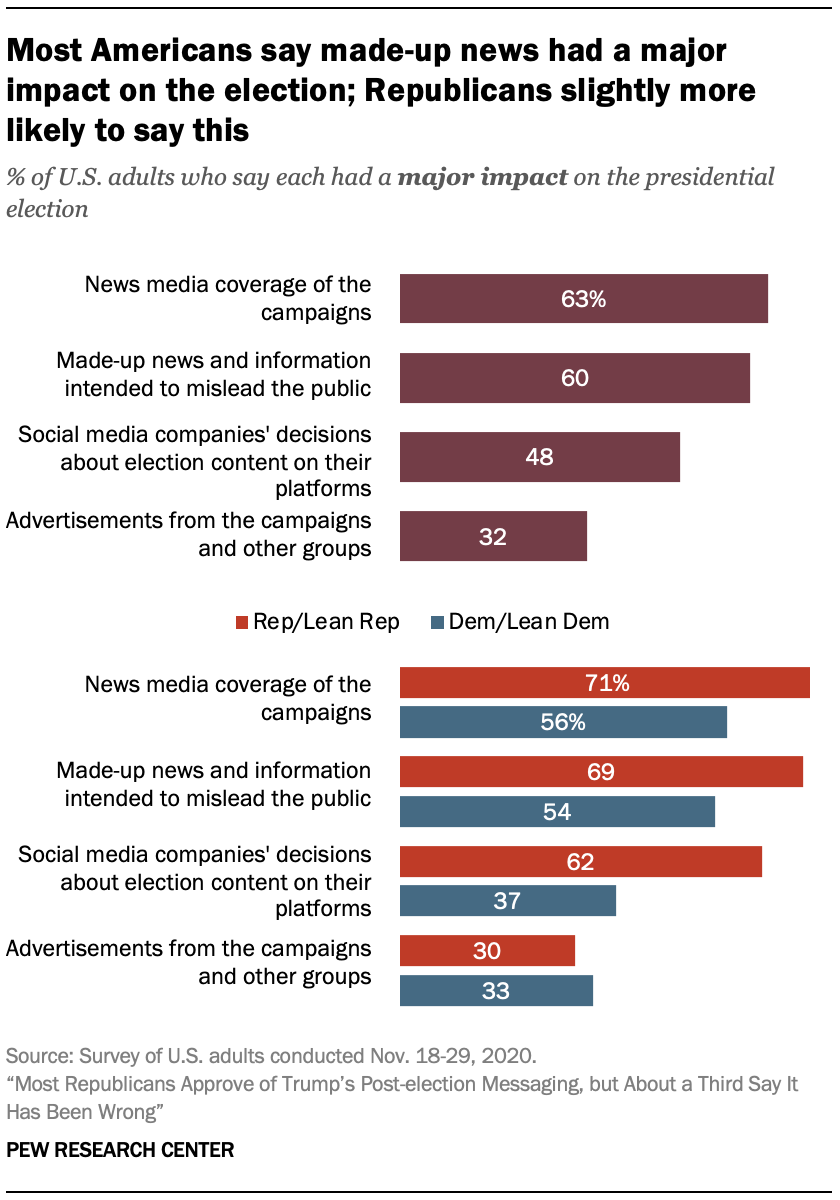
After an election season where viral online misinformation was rampant, six-in-ten Americans say that made-up news and information had a “major impact” on the presidential election, about on par with the portion who say the same of news media coverage.
More than half in both parties say this, with 54% of Democrats and independents who lean Democratic and 69% of Republicans and Republican leaners saying that made-up news intended to mislead the public had a major impact on the election.
Fewer Americans say social media companies’ decisions about election content and campaign advertisements had a major impact (48% and 32%, respectively). But the sharpest divide between the parties concerns the impact of decisions by social media companies about election content on their platforms: A solid majority of Republicans (62%) say those decisions had a major impact, compared with a much smaller percentage of Democrats (37%). It is possible that some of this response by Republicans reflects anger over Twitter and other social media platforms’ decisions to flag some of President Trump’s posts as misleading.
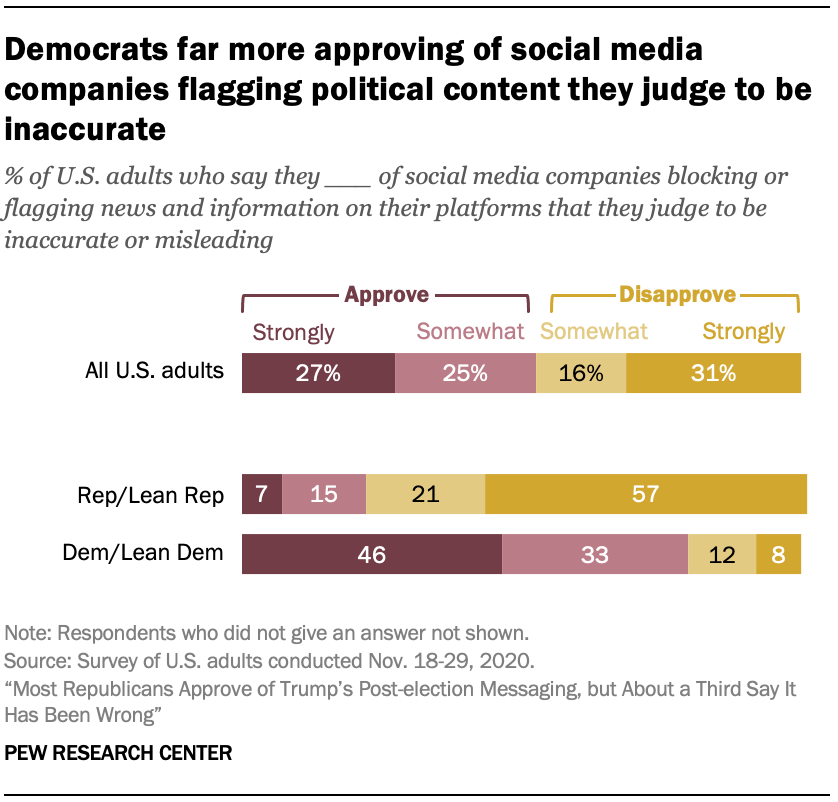
In addition to thinking that actions by social media companies had a major impact on the election, Republicans also are far more likely to disapprove of these actions.
Nearly eight-in-ten Republicans (78%) disapprove of social media companies blocking or flagging news that they judge to be inaccurate or misleading – with over half (57%) saying they strongly disapprove. Democrats have the inverse view, with 78% saying they approve of social media companies flagging or blocking this type of content (including 46% who strongly approve).
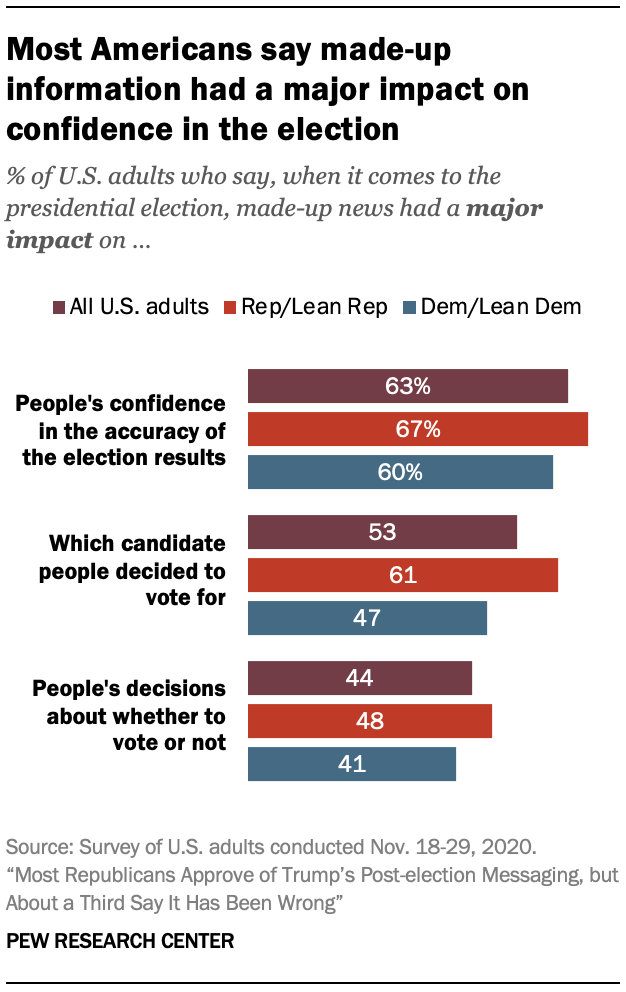
The survey also asked a few specific questions about the impact of made-up news on the election. Most Americans (63%) say made-up news had a major impact on people’s confidence in the results, while about half (53%) say it had a major impact on which candidate people decided to vote for. Fewer (44%) feel made-up news had a major impact on people’s decisions about whether to vote at all.
Somewhat more Republicans than Democrats say made-up news had a major impact on these questions. The gap is widest over whether this misinformation had a major impact on which candidate voters supported: 61% of Republicans say it did versus 47% of Democrats.
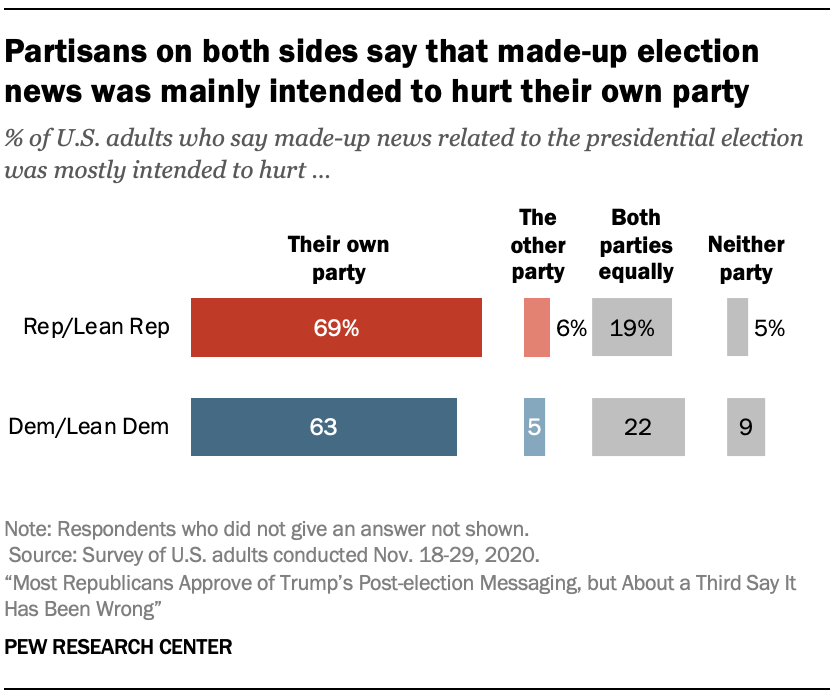
When asked which party election misinformation was mostly intended to hurt, however, both Democrats and Republicans see it as targeting their own side. About seven-in-ten Republicans (69%) say that made-up election news was mostly intended to hurt the Republican Party, and 63% of Democrats say that it was intended to hurt the Democratic Party. Some in each party (19% of Republicans and 22% of Democrats) say that it was intended to hurt both sides equally. But very few on either side of the partisan divide (6% of Republicans and 5% of Democrats) say that made-up news was mainly intended to hurt the opposing party. These patterns are largely similar to those expressed in late 2019, when respondents were asked which party they expected to be the target of misinformation in the 2020 election.
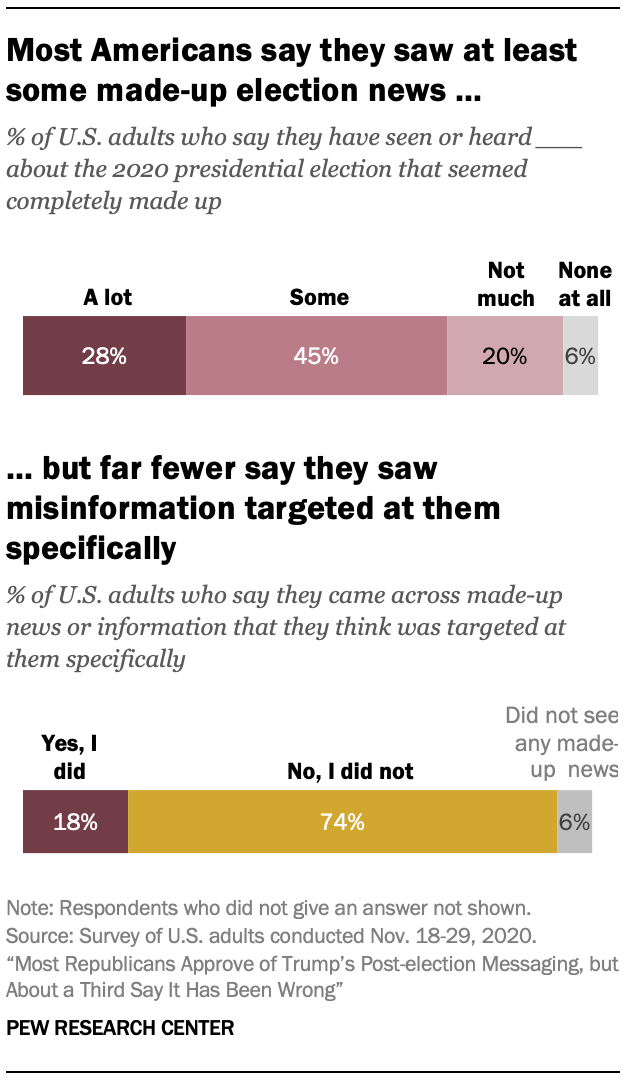
Most Americans (72%) say they saw at least “some” news about the election that seemed completely made up, including 28% who say they saw “a lot.” And in an election where there was evidence of some voters being specifically targeted by made-up news, a small portion (18%) say they saw made-up news that seemed targeted at them.

And some groups are slightly more likely than others to say they felt specifically targeted by misinformation. For instance, a quarter of conservative Republicans (25%) say they feel this way, compared with 14% of liberal Democrats.
Hispanic Americans and men also are slightly more likely to say they saw made-up news targeted specifically at them.




